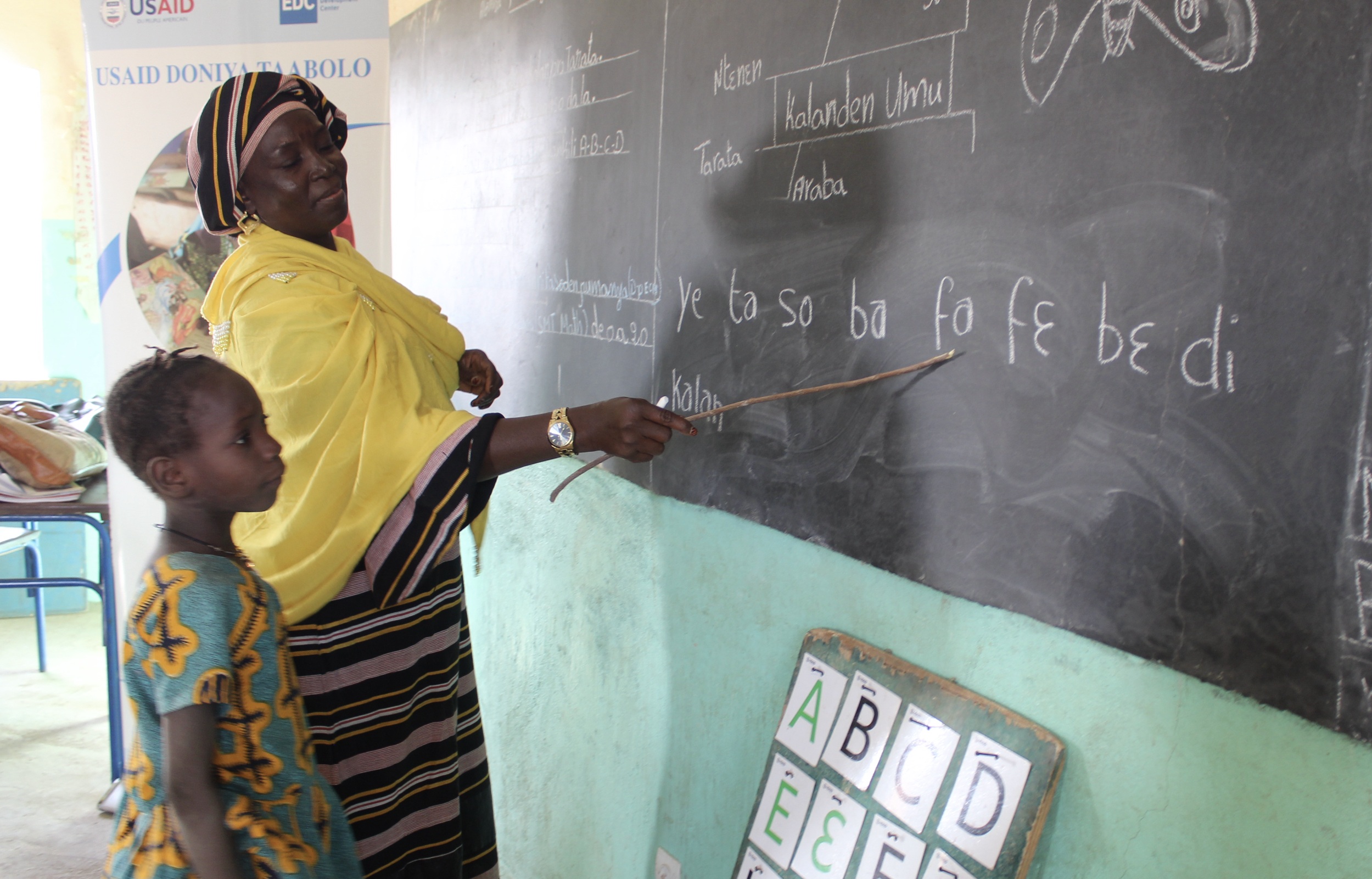USAID Mali Doniya Taabolo

Project Director:
EDC Staff:
Funded by:
U.S. Agency for International Development
Partners:
Œuvre Malienne d’Aide à l’Enfance du Sahel (OMAES), Conseils et Appui pour l’Education à la Base (CAEB), Cabinet de Recherche Actions pour le Développement Endogène (CRADE), Fédération Malienne des Associations de Personnes Handicapées (FEMAPH), and Imagine Worldwide.
Services:
Design & DevelopmentImplementationPolicy
Region:
Africa
Duration:
2023-2025
Challenge
Mali faces ongoing challenges to provide consistent, systematic quality education. Conflict, internal disruptions to learning (including teacher strikes), and constraints of poverty are just some of the large-scale factors threatening teaching and learning. The education system lacks flexibility and is not able to easily adapt and respond to political strife, extreme weather, or health crises. Each of these components has the potential to bring a system to its knees. When they coincide, it can threaten maintaining past gains, let alone advancing new gains.
EDC led the implementation of the USAID Doniya Taabolo Activity, a project that covered the regions of Bougouni, Koutiala, Sikasso, San, Ségou, Dioïla, Koulikoro, and the district of Bamako. Its main aim was to improve foundational skills for Grade 1 to 4 students from 1,000 schools in Bamanankan-speaking regions by improving reading and math teaching quality, increasing community engagement, and reinforcing service delivery systems.
Key Activities
USAID Doniya Taabolo carried out the following activities:
- Improved reading, writing, and mathematics instruction by developing materials in Mali’s national language, Bamanakan
- Provided initial and in-service teacher training and supporting teachers through practice, content, and materials
- Strengthened the education system’s ability to deliver quality education
- Established a policy framework to institutionalize proven approaches and build a strong interconnected set of materials and strategies
- Increased community support for children’s learning by building parents’ ability to support their children
- Increased the capacity of school management committees to improve school operations
- Organized extracurricular reading activities so that parents, community members, and local governments can become partners in education
Impact
USAID Doniya Taabolo:
- Developed and distributed 300,000 teaching and learning materials for early grade reading and math to educators
- Trained 3,341 teachers and 993 school leaders in inclusive, evidence-based professional development
- Screened 1,881 students for disabilities, including vision, hearing, physical, and cognitive needs
- Engaged 2,000+ community volunteers across 857 communities in school governance, outreach, and home learning support






